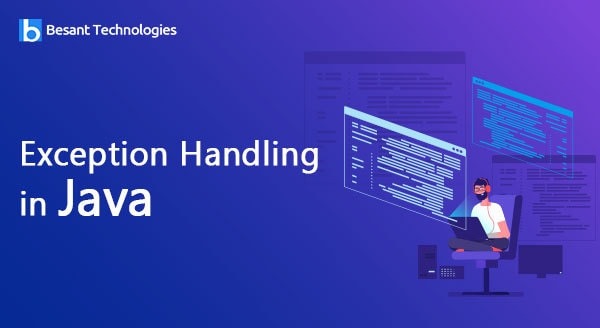
Exception Handling in Java
Exception Handling in Java
An exception is an unpredicateble or unwanted event, which is happend at the time of execution of a application or program i.e run time it will collaps the regular flow of the application execution of instructions of programmer.
We can consider the exceptions are for run time errors like stack winding,stack over flow ,stack underflow ,unable to connect the database,file opening error,divisible by zero,array out of bound error.
Types of Exception in Java
Java has been divided two types of exceptions they are
- Checked Exceptions
- UnChecked Exceptions
Checked Exceptions:
Checked exceptions we can categorised as Errors, run time errors. Most common unchecked Exceptions are IoException,SQLException,Data Access Exception,Class not found exception,Installation exceptional.
UnChecked Exceptions:
Unchecked Expections are completely consider as Run time exception or errors,most common are Null pointer exception,Array index bound,llegal State Exception,Number Format Exception.
What is user or custom defined exception in Java?
Java we have already outlined, exception categories like Arithmetic Exception, Null Pointer Exception etc. This exceptions defined area things already set for trigger on conditions In built like you once divide any objecy by zero division divisionbyzero exception from arithmetic, In Last exception we have to learnt however to throw these exceptions expressly supported your conditions exploitation keyword throw.
we are able to produce our user exception category and hat exception throw texploitation keyword throw. These exceptions area unit called custom exceptions or user-defined . To create our user exceptions we can use try-catch block and throw.
Example:
class InvalidProductException extends Exception
{
public InvalidProductException(String s)
{
// Call constructor of parent Exception
super(s);
}
}
public class Example1
{
void productCheck(int weight) throws InvalidProductException{
if(weight<100){
throw new InvalidProductException("Product Invalid");
}
}
public static void main(String args[])
{
Example1 obj = new Example1();
try
{
obj.productCheck(60);
}
catch (InvalidProductException ex)
{
System.out.println("Caught the exception");
System.out.println(ex.getMessage());
}
}
}
Output:
Caught the exception Product Invalid
Click Here-> Get Java Training with Real-time Projects

